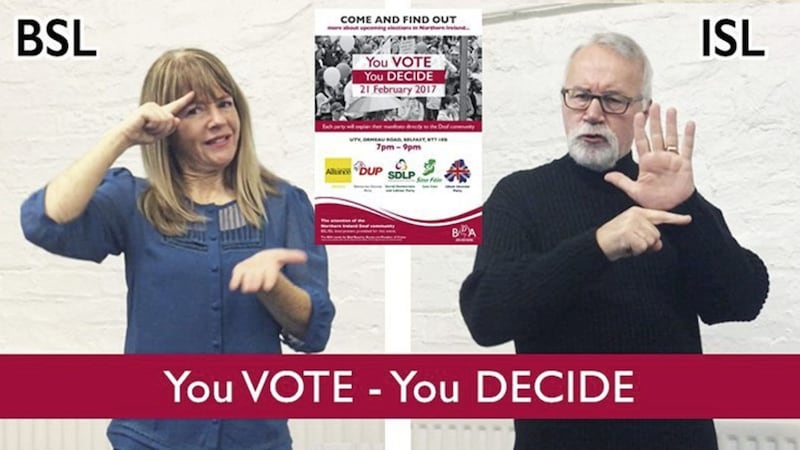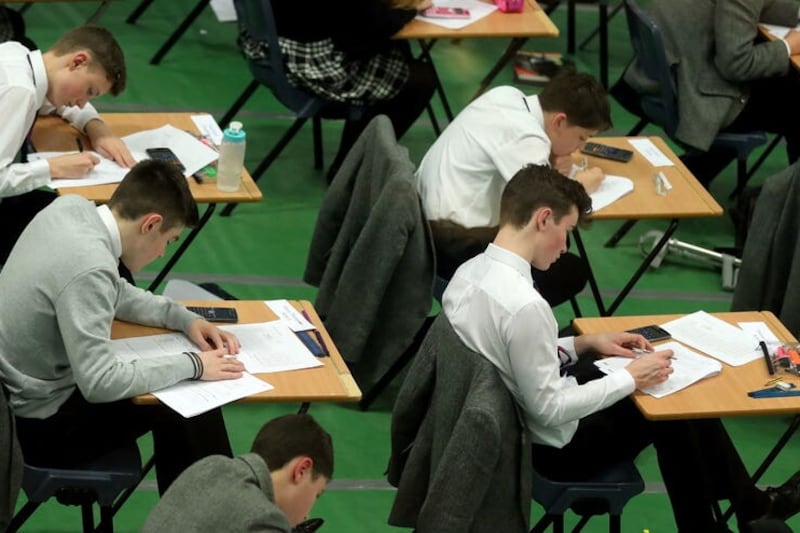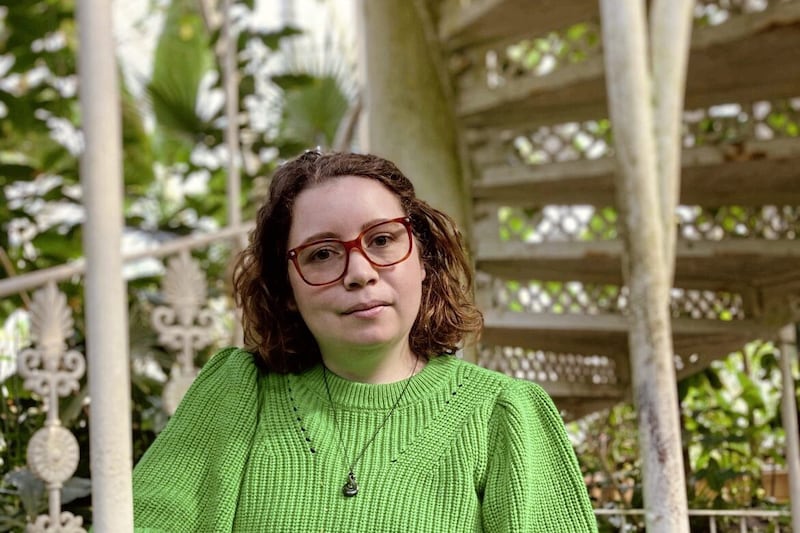IRISH was poised to become an "official language" in Northern Ireland before the collapse of the power-sharing executive in January 2017.
For while a stand-off continues between Sinn Féin and the DUP over an Irish Language Act, an unintended consequence appears to have been the stalling of official recognition of Irish Sign Language (ISL).
Along with British Sign Language (BSL), ISL was little more that a stroke of a minister's pen away from becoming an official language when the assembly was brought down 16 months ago.
Contained in the Sign Language Framework, which went out for consultation in March 2016, proposals for an Irish Sign Language and British Sign Language bill were widely endorsed.
There are 3,500 BSL speakers and 1,500 ISL speakers in Northern Ireland, but just 28 registered interpreters.
There are around 1,400 deaf children - varying from moderate to profound hearing loss.
The British Deaf Association (BDA NI) was among supporters of the framework's proposal "that Irish Sign Language and British Sign Language be recognised and defined as official languages in the north in such a way as to guarantee services through Irish Sign Language and British Sign Language on a par with those available through English".
Majella McAteer of the BDA NI said it had been "a very successful consultation partly as for the first time Facebook was utilised by a government department to allow deaf people to deliver their response in their native language (sign language)".
"Unfortunately, due to the situation in Stormont, the process has stalled. If this had not been the case, I would be reasonably confident that we would have progressed to discussing a draft BSL/ISL bill by this stage.
"A similar process took place in Scotland and from the time of initial consultation to an act was about four years but it is anticipated that it will be much quicker here in NI."
The plan won endorsement from the Royal College of Speech and Language Therapists which said it "fully supports" efforts to ensure "the natural language" of Northern Ireland's deaf community is afforded equal recognition.
The framework also provided for a scheme to ensure free BSL and ISL classes for parents, siblings, grandparents and guardians of a deaf child.
Ninety per cent of deaf children are born to hearing parents who do not have the knowledge or skills to communicate effectively with their child.
The Equality Commission, which also backed the proposed law change, points out that deaf people "have to declare themselves as disabled to secure reasonable adjustments - no other linguistic minority has to do this to be able to access services in their own language".
However, almost two years after the end of consultation, the deaf community remains in limbo because the proposals cannot proceed without ministerial approval.
The BDA NI said if sign language is "recognised as an official language in its own right, on par with spoken languages, deaf people will gain more respect, recognition and inclusion".
It points to "many studies" which have shown deaf people have "poor access to important information such as health or financial matters" which they need to be able to access directly with "no cost implications to themselves".
"Lack of access to information is best described as information poverty, affecting every aspect of a deaf person’s life including education, civic rights and health," it said.
A key concern is for deaf children who are "left without adequate communication skills from an early age".
At present, these children are often "falling behind on their development due to the lack of communication skills".
BDA NI's `Family Signing in the Home' pilot project has proved very successful and, it says, highlights the need for the service.
"Giving deaf babies/children the opportunity for easy communication will open the world up to them, give them a means by which they can learn, grow and develop to become as healthy and balanced as their hearing peers."
It proposes that if a deaf child finds sign language "to be the most easily accessible, comfortable and appropriate method... (they) should have the right to access all of their educational experiences through that medium", claiming children are "pushed through the oral route".
This "suppresses a child's natural language (sign language) and imposes many laborious hours of speech therapy, which has been shown to have a negative impact on schooling, all with the aim of getting a square peg to fit in a round hole".
Figures show that deaf children are leaving school with a much poorer reading age than their hearing peers, very few (or no) qualifications, unable to access higher education and are much more likely to be out of work
BDA NI insist these trends could be reversed if children are given support and "have access to quality education through sign language".








